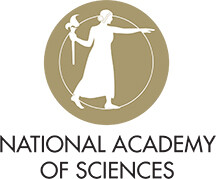
The University of Nebraska–Lincoln has added a fifth member to the National Academy of Sciences.
Sherilyn Fritz, George Holmes Professor in Earth and atmospheric sciences and the School of Biological Sciences, joined 120 new members and 30 international members elected for membership of the academy, which recognizes and elevates outstanding science, fosters the broad understanding of science and oversees the National Research Council. Membership is one of the highest distinctions for a scientist or engineer in the United States.

Fritz's career has spanned decades and continents. She has served on international research committees, including PAGES and currently as co-chair of the International Continental Drilling Program's science evaluation panel.
The selection process for election to the academy is secret — even those nominated are not informed. Fritz learned of her membership through an April 29 phone call from a friend and colleague in the academy.
“It was a complete surprise,” Fritz said. “You're recognized by a group of peers that are engaged in high quality science. The notion that your peers think your career has added something meaningful is a nice acknowledgement.”
Fritz also thought of her father, Charles E. Fritz, a sociologist who researched human behavior in disasters and was himself a staff scientist with the academy when Fritz was growing up. She remembers spending time in his downtown Washington, D.C., office.
“The academy has elected members, but they also have a large staff of scientists that lead committees commissioned by the government to investigate different things,” she said. “That is what my dad did. I wish he were still alive; he’d be really proud.”
Fritz initially thought she would follow in her father’s footsteps, but after taking some sociology classes as an undergraduate, she did not connect with it. She took a biology class and found she was pretty good at it.
“Pretty much every choice I made until I started my Ph.D. was a random exploration of not knowing what to do, but following something I liked,” Fritz said. “When I started my Ph.D. at the University of Minnesota, everything started to solidify, but even then, I wasn’t sure if I’d work for the government or be a professor.
“I made some good choices along the way, but nonetheless, I followed opportunities, and I never would have dreamed I would have ended up here.”
Fritz is still exploring, studying diatoms and their importance in ecosystems both ancient and contemporary. Her research reconstructs long-term environmental change.
“I think my career has been propelled forward because I am an interdisciplinary person,” she said. “I work at the interface of geology and biology and atmospheric sciences; that gives one lots of creative avenues.
“I encourage my students to meet people and build up their networks, because networking for me has created a lot of opportunities.”
Fritz has been on research projects on five continents, though she has found Nebraska to be the right place to call home.
“The university has been an immensely supportive environment to explore my career,” she said. “My departments are incredibly collegial — they always have been — and supportive. I am much happier in an environment where the university is supportive and interactive.”







